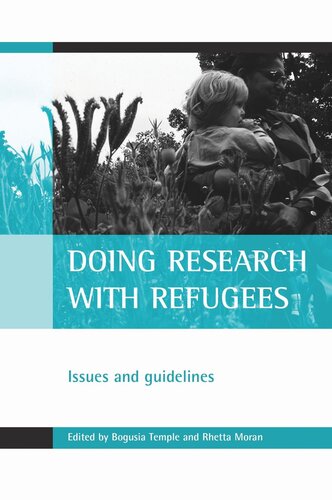

Most ebook files are in PDF format, so you can easily read them using various software such as Foxit Reader or directly on the Google Chrome browser.
Some ebook files are released by publishers in other formats such as .awz, .mobi, .epub, .fb2, etc. You may need to install specific software to read these formats on mobile/PC, such as Calibre.
Please read the tutorial at this link: https://ebookbell.com/faq
We offer FREE conversion to the popular formats you request; however, this may take some time. Therefore, right after payment, please email us, and we will try to provide the service as quickly as possible.
For some exceptional file formats or broken links (if any), please refrain from opening any disputes. Instead, email us first, and we will try to assist within a maximum of 6 hours.
EbookBell Team

4.1
90 reviewsThis book is the first specifically to explore methodological issues relating to the involvement of refugees in both service evaluation and development and research more generally. It builds on a two-year seminar series funded by the ESRC and attended by members of a range of statutory and voluntary organisations, as well as academics and refugees themselves. The participants jointly drew up a set of good practice guidelines that are re-produced in the book for the first time. Key features include a focus on the methodology for active involvement of refugees; a discussion of barriers to involvement; suggestions for overcoming barriers; analysis of existing practices and ideas for change and a discussion of the implications for policy, research and practice. Doing research with refugees is essential reading for anyone working with in the field. This includes academics, researchers, health and social care providers and voluntary organisations. Refugees themselves who are interested in their role in service evaluation, development and research will also find the book of interest.